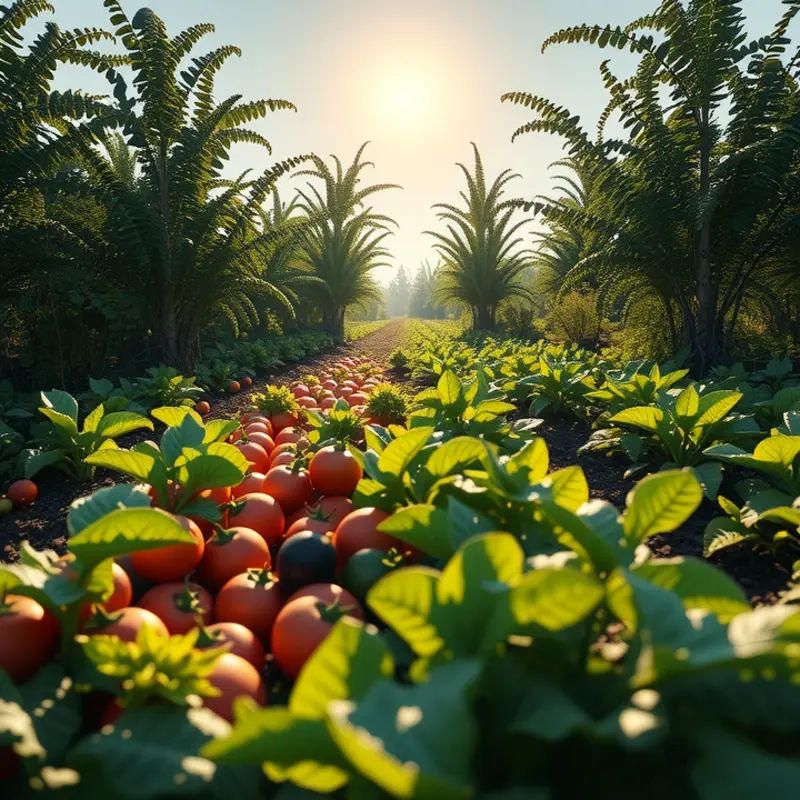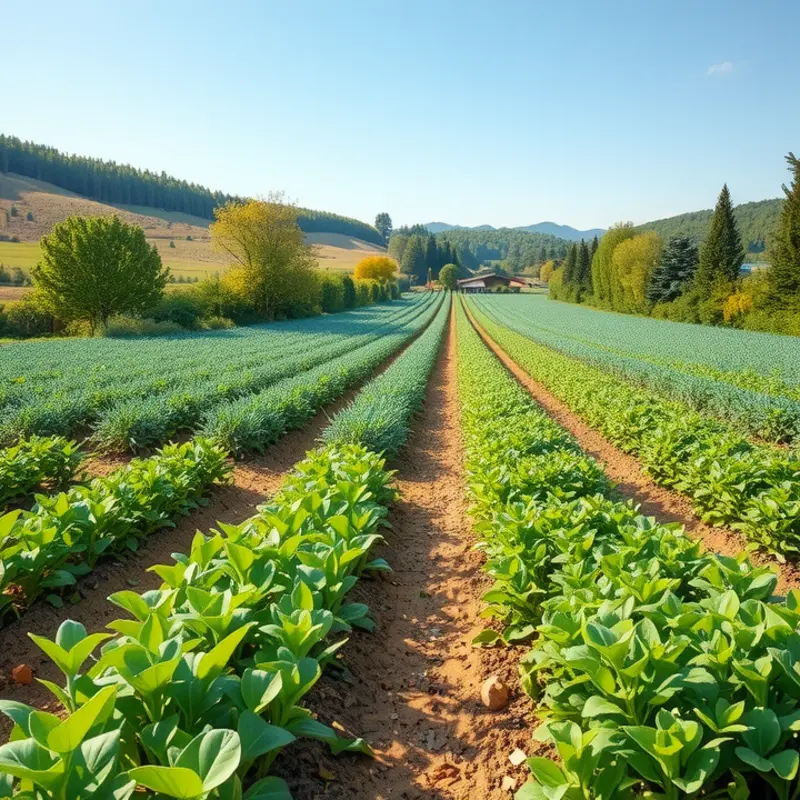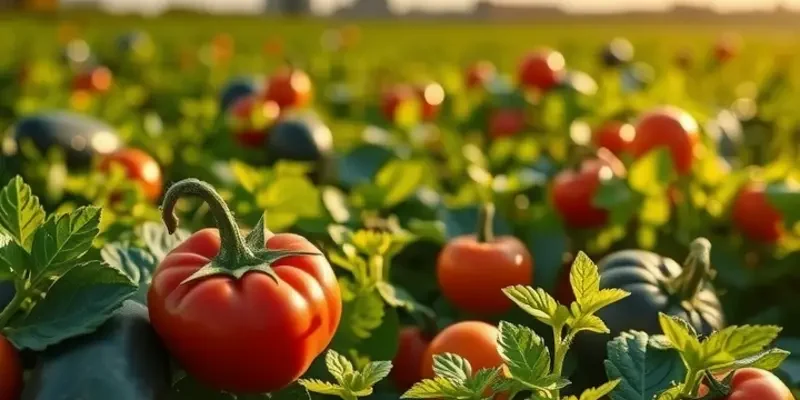Food choices significantly impact environmental health. With planet-friendly eating, individuals can contribute to reducing agricultural harm. Selecting foods that help regenerate the environment, lessen carbon footprints, and embrace biodiversity is crucial for creating a sustainable food system. This article guides you through specific food options that allow you to make meaningful changes, offering insights into plants and practices that support eco-conscious living.
Sustainable Plant-Based Alternatives

Plant-based foods offer an effective solution to reduce agricultural impact. They nourish our bodies while promoting environmental health. By opting for plant-based diets, we support biodiversity, cut greenhouse gas emissions, and embrace regenerative farming practices.
Legumes such as lentils, chickpeas, and beans are cornerstones of sustainability. These legumes enrich soil with nitrogen, which reduces the need for chemical fertilizers. This natural fertilization encourages a healthier ecosystem. Nutritionally, legumes are high in protein, fiber, and essential minerals, providing an excellent meat alternative.
Grains like quinoa, barley, and oats also stand out as eco-friendly choices. Quinoa thrives in diverse climates, requiring minimal irrigation, which preserves water resources. Barley and oats grow in cooler temperatures, compatible with minimal pesticide use. Rich in vitamins, minerals, and antioxidants, grains play a crucial role in a balanced diet.
Fruits are another vital component. Local, seasonal fruits usually have a lower carbon footprint compared to imports. Apples, berries, and citrus fruits not only diversify our diets but also contain high levels of vitamins, fiber, and antioxidants.
Incorporating a variety of plant-based foods can support regenerative agriculture, a practice aligning with eco-friendly aspirations. Regenerative farming improves soil health, increases biodiversity, and draws carbon from the atmosphere—fostering sustainable food production.
Supporting biodiversity is essential for a resilient agricultural system. Each plant species contributes uniquely to ecosystem balance. Consuming diverse plant-based foods encourages the cultivation of multiple crops, strengthening the environment against pests and diseases.
By reducing reliance on animal products, plant-based diets decrease methane emissions, a powerful greenhouse gas. Encouraging more plant-based meals can significantly cut the carbon footprint of our food systems.
For more tips on incorporating sustainable meals into your routine, explore these minimal prep dinner ideas. Reducing meal prep time while still prioritizing eco-friendly options can make healthy eating more accessible.
Through mindful food choices, we can all make eco-friendly decisions that lead to a sustainable future. These plant-based alternatives are not only beneficial to our health but also pivotal in reducing the environmental impact of our food. Let’s embrace this movement towards earth-friendly eats and pave the way for a greener tomorrow.
Supporting Local and Organic Practices

Opting to support local and organic food systems can profoundly reduce the environmental impact of agriculture. While large-scale farming operations often rely on chemical treatments and extensive distribution networks, local and organic practices embrace more sustainable and earth-friendly methods.
When you buy local produce, you’re not just getting fresh food; you’re also supporting your community’s economy. Local farmers have reduced transportation distances, which means lower carbon emissions due to reduced fuel consumption. Unlike conventional distribution channels, local systems often use fewer resources, contributing less to pollution and energy consumption.
Organic farming plays a crucial role in fostering soil health. Organic methods prioritize the use of natural fertilizers, which improve soil structure and nutrient content. This in turn supports robust plant growth without relying on synthetic inputs. Healthy soils sequester more carbon, a key factor in addressing climate change. Furthermore, organic farms tend to support higher biodiversity, providing habitats for a range of flora and fauna that thrive without the threat of synthetic pesticides and fertilizers.
Choosing organic means reducing the chemicals introduced into ecosystems. Organic farming prohibits the use of synthetic pesticides, which can have harmful effects on wildlife and human health. Lower pesticide usage also means less risk of contaminating water sources, contributing to healthier landscapes.
So how do you find these products? Visiting a local farmer’s market is an excellent way to discover fresh, seasonal produce and grass-roots producers. Many markets operate year-round, offering a dynamic selection of fruits and vegetables throughout the seasons. During a visit, engage with the farmers to learn about their practices and what makes their offerings unique.
Understanding organic labels is also helpful. Products labeled as ‘100% organic’ contain only organically produced ingredients and processes, while labels with ‘organic’ must contain at least 95% organic content. Look for these indicators when shopping, as they certify adherence to specific environmental standards.
For those looking to explore practical ways to support eco-friendly practices in the kitchen, ideas such as minimal-prep dinner inspirations are available online. Practical ingredient batching can simplify meal preparation while reducing waste.
Ultimately, supporting local and organic practices is more than just a purchase—it’s a commitment to a more sustainable future. By making informed choices, consumers can drive demand for sustainable products, fostering a healthier planet for generations to come.
Final words
By integrating plant-based alternatives and supporting local organic practices into your diet, you can play a critical role in alleviating agricultural impact. Every meal is an opportunity to choose sustainable options that protect our environment and promote global health. Embrace these eco-friendly choices, advocate for regenerative practices, and inspire others in your community. Together, we can foster a sustainable future where food systems contribute positively to both our planet and our well-being.








